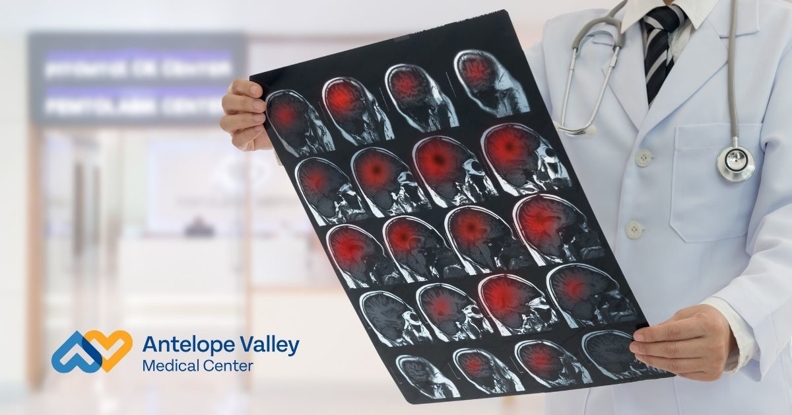Safeguarding Your Health this Summer
- Category: Blog
- Posted On:

Preventing Summer Injuries and Illnesses
With the heat hitting its peak for the summer, it's essential that you take the proper precautions to prevent injuries and illnesses. The health experts at Antelope Valley Medical Center are here to share some tips that will help you and your family stay happy and healthy!
Shield Your Skin from the Sun
Spending small amounts of time in direct sunlight is relatively harmless, however, excessive exposure to the sun’s ultraviolet (UV) rays can damage and even kill off your skin cells. Immediate signs of skin damage are uncomfortable sunburns and peeling skin, but if you too many sunburns, it can result in skin cancer.
Whether you’re spending time at the beach or tending to your yard, it’s important to remember to protect your skin from the sun’s harmful rays.
Applying Sunscreen
When looking for a sunscreen, it is essential to choose one that is marked as being “broad-spectrum.” This means that the sunscreen will effectively protect your skin from UVA and UVB rays. It should also have a sun protection factor (SPF) of at least 30.
Follow these steps when applying your sunscreen to ensure you have adequate protection:
- Apply 15-20 minutes before heading outside.
- Use 1 ounce of sunscreen to cover your body.
- Rub sunscreen in thoroughly.
- Reapply sunscreen every 2 hours.
More Sun Safety Tips
More ways to protect yourself from the sun’s UV rays include:
- Wear sunglasses with UV protection.
- Wear brimmed hats.
- Wear long sleeves and pants when you can.
- Spend time in shaded areas when outdoors.
Practice Pool & Water Safety
Supervise Children
Unintentional drownings are one the leading causes of death for children and teens, making it imperative that adults supervise them when spending time in or near water. Stay alert, attentive, and nearby even when there is a lifeguard on duty.
Don’t Run or Dive
Although playing games in the water can be great fun, roughhousing can bring on unwanted injuries that can even be fatal. When swimming in a pool or shallow water, avoid running by the edge of the water and diving into the pool head-first.
Don’t Drink and Swim
About 70% of unintentional drownings involve alcohol consumption. While alcohol already affects your coordination and decision-making skills, the summer heat intensifies these effects.
While it may sound like a good idea to enjoy a cold drink on the lake or by the pool, it’s recommended that you avoid drinking if you’re going swimming or spending time by the water.
Stay Properly Hydrated
With the average adult human body being made up of 60% water, staying hydrated is an essential part of supporting our overall health and wellness. When you don’t drink enough water, your body is at risk of becoming dehydrated. In most cases this can lead to an annoying headache, dark urine, and drowsiness—but during the summertime, it can lead to the following serious health issues:
- Heatstroke
- Heat exhaustion
- Seizures
- Urinary health problems
Foods With High Water Content
It is recommended that you try to drink eight 8-ounce glasses of water each day. Although that can seem easy for some, others may struggle to drink this much plain water each day. Fortunately, there are plenty of fruits and veggies that can help to keep you hydrated:
- Broccoli
- Bell peppers
- Carrots
- Cauliflower
- Celery
- Cantaloupe
- Cucumber
- Spinach
- Peaches
- Tomato
- Watermelon
Know How To Do CPR
During an emergency citation, performing CPR can help to save a life. Whether you’ve been previously certified for your job or you just happen to be a passerby—knowing each step and how to do them properly can help someone when they need it most.
Check Your Surroundings
Before preparing to perform CPR, it is important to assess the situation at hand and check your surroundings. After ensuring that your location is safe, check on the affected person to see if they’re alright.
Check if the person is:
- Unconscious
- Unresponsive
- Not breathing
Call 911
If you have determined that the person is in need of emergency medical attention, dial 911 immediately. If someone else is with you, send them to see if there is an automated external defibrillator (AED) close by.
Open the Airway
The last thing you need to do before performing CPR is to make sure the person’s airways are open. Do this by lying the person on their back, tilting their chin up, and tilting their head back.
Check their Breathing Again
Once the airways are opened, check for breathing once more. Listen intently for no more than 10 seconds to look for any signs of breathing. If there are none, you are ready to begin CPR.
Chest Compressions
Placing your hands one on top of the other in the center of the person’s chest, use your bodyweight to press hard and fast. The compressions should be at least 2 inches deep. Maintain a rate of 100 compressions per minute.
Rescue Breaths
Keeping the person’s head tilted back and their chin up, pinch their nose and put your mouth over theirs, making a complete seal. Blow into the person’s mouth with enough force to make their chest rise. Repeat this a second time and go back to giving chest compressions.
Repeat these 2 Steps
Continue repeating the CPR steps until:
- The person begins breathing on their own.
- An AED has been found.
- Emergency medical services arrive.
Trauma Center in Lancaster, CA
At Antelope Valley Medical Center, we understand that every second counts and can mean the difference between life and death. Antelope Valley Medical Center 's Level II Trauma Center is staffed with highly trained professionals, including a trauma surgeon, neurosurgeon, orthopedic surgeon, anesthesiologist, nurses, and radiologists.
Antelope Valley Medical Center is also the only hospital in the area approved by the County of Los Angeles as an Emergency Department Approved for Pediatrics (EDAP). This means that we are ready to treat infants, children, and adolescents with serious illnesses or injuries at any time.
Call (661) 949-5000 or visit our dedicated trauma care page for more information.
Call 911 if you or someone around you are experiencing a medical emergency.


.jpg)
